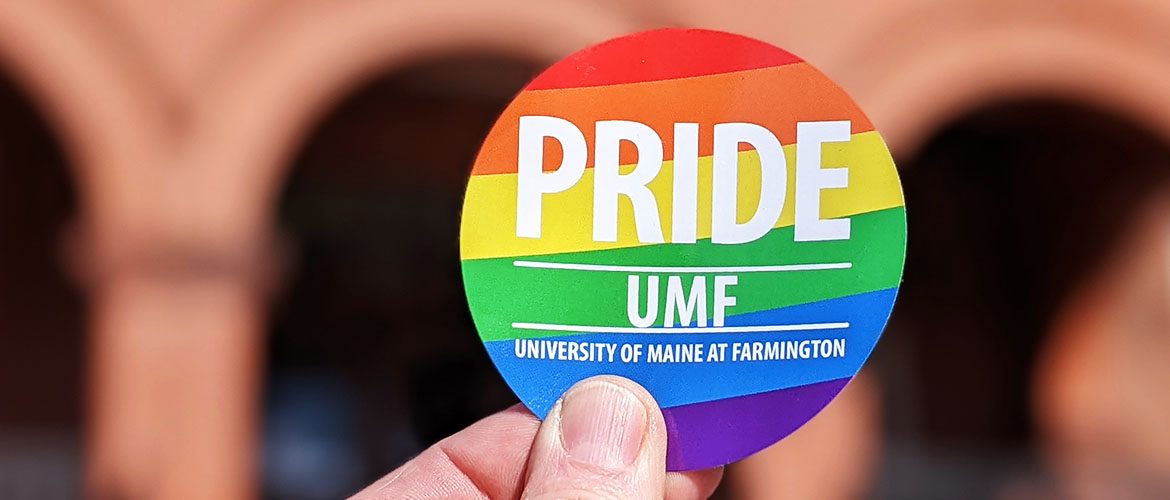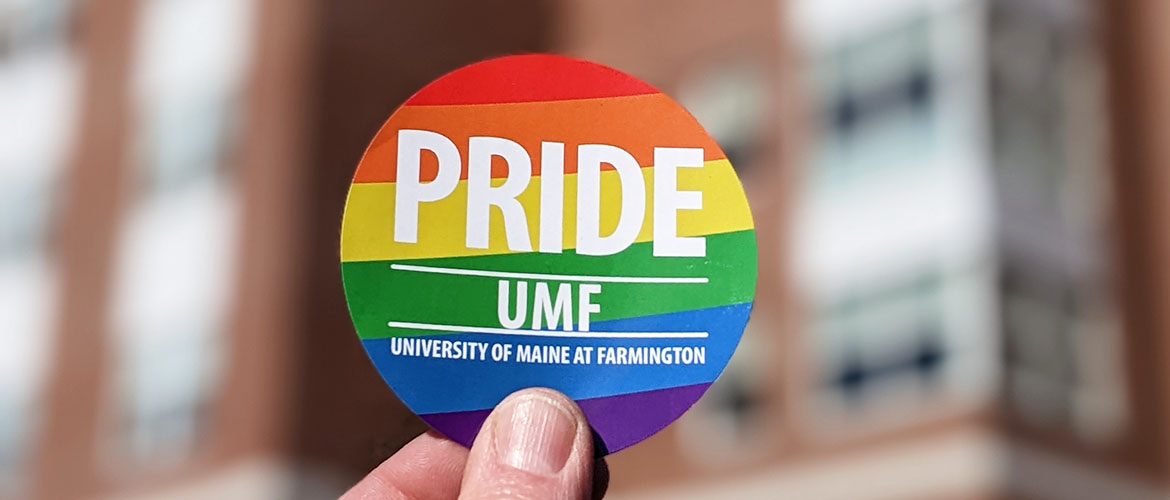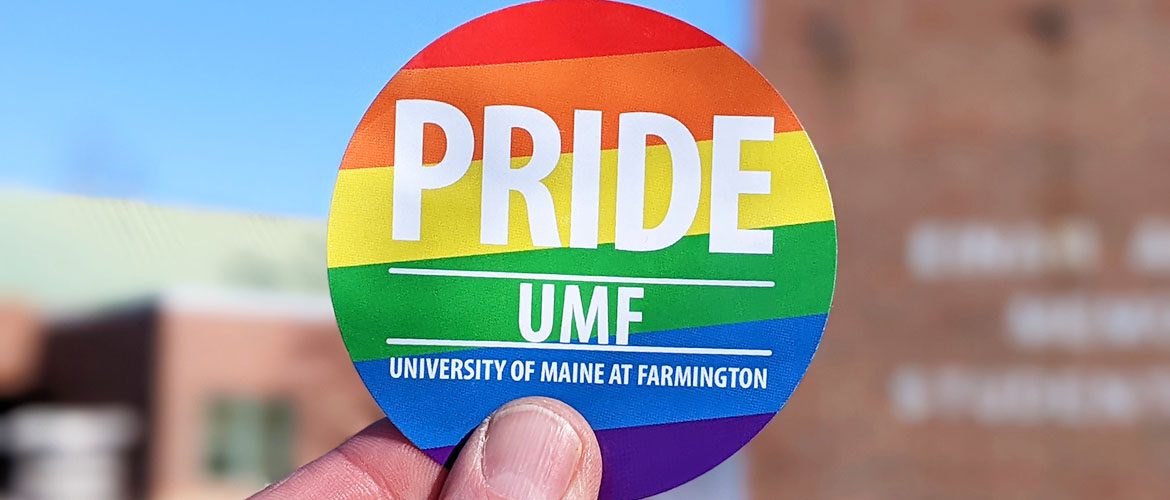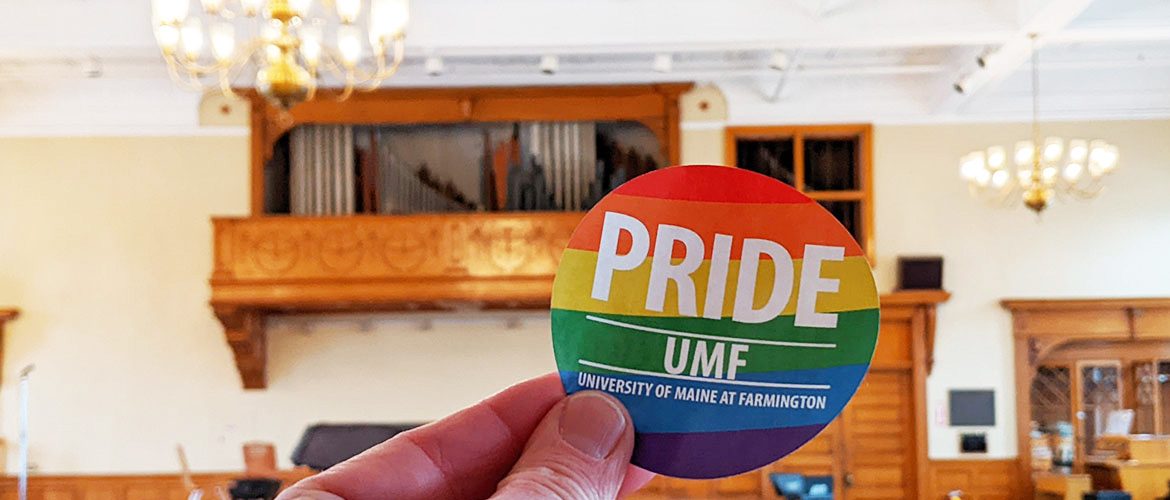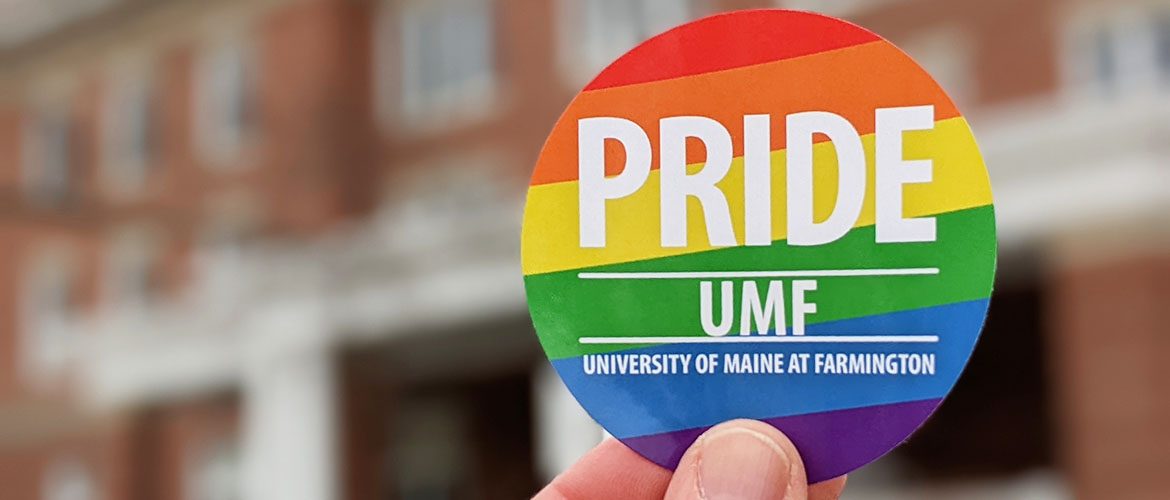A quick note: These working definitions are some of the most popular uses of the terms listed. But there may be some variation in definitions depending on location and context.
Be aware that a person who uses any or all of these terms may do so in a unique way — especially terms that are in the context of an identity label. If you’re not sure of the context in which a person is using one of these terms, it’s always appropriate to ask. In fact, it’s welcomed! This is especially recommended when using terms that may have once had a derogatory connotation.
A
Advocate – One who actively works to end intolerance, educate others, and support social equity for a marginalized group.
Agender – One who identifies as having no gender.
Ally – One who confronts heterosexism, homophobia, biphobia, transphobia, and heterosexual privilege in themselves and others; who has a concern for the well-being of lesbian, gay, bisexual, trans, and intersex people; and a belief that heterosexism, homophobia, biphobia and transphobia are social justice issues.
Androgyne/androgynous – Person appearing and / or identifying as neither man nor woman, presenting a gender either mixed or neutral. This is not a frequently used term.
Asexual – There are many levels of asexuality, ranging from asexual (do not experience attraction to any gender) aromantic, (a person who experiences little or no romantic attraction to others) demisexual (attraction only after emotional connection) and beyond. Asexuality is distinct from celibacy, which is the deliberate abstention from sexual activity. Some asexual people do have sex.
B
Bathroom Solidarity – A supportive action that may be desired by some trans individuals in which a cisgender individual accompanies or escorts a trans individual to a public bathroom. Don’t assume this is required or desired, but feel free to ask.
Bigender – A person whose gender identity is a combination of masculine and feminine.
Binding – The process of flattening one’s breasts to have a more masculine or flat-appearing chest.
Biphobia – The fear of, discrimination against, or hatred of bisexuals, which is often times related to the current binary standard.
Bisexual – A person attracted to people who identify with their own gender and at least one other gender. This attraction does not have to be equally split between those genders and there may be a preference for one gender over others. In the past, this term meant someone attracted to men and women, and can still mean that for some people. However, the term is used more broadly by some now.
Bottom Surgery – Surgery on the genitals designed to create a body in harmony with a person’s preferred gender expression.
Butch – A person who identifies themselves as masculine, whether it be physically, mentally or emotionally. ‘Butch’ is sometimes used as a derogatory term for lesbians, but it can also be claimed as an affirmative identity label.
C
Cisgender – A gender identity, or performance in a gender role, that society deems to match the person’s assigned sex at birth. This term is used to avoid “othering” trans people. For example, “Trans” versus “Normal” people.
Coming Out – Refers to the process of accepting one’s own sexuality/gender and / or the process of sharing with others your sexuality/gender. This can be a continual, life-long process for LGBTQ individuals.
D
Dead-naming – The instance of referring to a trans person (who has changed their name) by the name they were assigned at birth. Deadnaming normally occurs for one of three reasons: 1: Someone accidentally deadnames because they’re used to using that name. 2: Someone purposefully deadnames to cause distress. 3: Someone purposefully deadnames because of their beliefs.
Demiromantic – One who only experiences romantic attraction after developing an emotional connection beforehand.
Demisexual – One who does not experience sexual attraction unless they have formed a strong emotional connection with another individual. Often within a romantic relationship.
Drag – The performance of a gender, theatrically.
Drag King – One who performs masculinity theatrically. This has no implications regarding gender identity or sexual orientation.
Drag Queen – One who performs femininity theatrically. This has no implications regarding gender identity or sexual orientation.
F
Femme – Feminine identified person of any gender/sex.
FTM / F2M – Abbreviation for female-to-male trans people, used occasionally in medical contexts and generally not appropriate for use in casual conversation.
G
Gay – A sexual and affectional orientation toward people of the same gender; can be used as an umbrella term for men and women. However, not all people who engage in “homosexual behavior” identify as gay, and as such this label should be used with caution.
Gender – A social construction related to how a person views themselves in relation to societal norms.
Gender Binary – The idea that there are only two genders: man and woman, and that a person must express themselves as either/or (See also ‘Identity Sphere’).
Gender Confirming Surgery – Medical surgeries used to modify one’s body to be more congruent with one’s gender identity.
Gender Dysphoria – A psychological term used by some mental health professionals to describe the feelings of pain and anguish that arise from a transgender person’s conflict between gender identity (internal experience) and biological sex (external experience). While conventional thinking may dictate that dysphoria is a defining quality of the transgender experience, a more contemporary understanding of gender indicates that is not true.
Gender Expression – The way a person expresses their gender through dress, vocal inflection, and hygienic habits such as shaving parts of the body.
Gender Identity – A person’s sense of being masculine, feminine, or other gendered, regardless of what sex they were assigned at birth.
Gender Oppression – The societal, institutional, and individual beliefs and practices that privilege cisgender people and subordinate trans or gender variant people. Also known as “genderism.”
Gender Roles – The socially constructed and culturally specific behavior and appearance expectations imposed on women (femininity) and men (masculinity). These social constructions can perpetuate the oppression of women.
Gender Variant / Gender Non-Conforming – A person who does not conform to gender-based expectations of society. Examples of individuals that identify as gender variant / non-conforming could be: transgender, intersex, genderqueer, nonbinary, cross-dresser. However, not all people that identify with these examples also identify with gender variant or non-conforming. Always use a person’s self-identified language.
Genderqueer – A person gender identity is neither masculine nor feminine, is between or beyond genders, or is some combination of genders.
H
Heteronormativity – The assumption, in individuals or in institutions, that everyone is heterosexual, and that heterosexuality is the norm, and anything else is “other”.
Heterosexism – The institutionalized belief that heterosexuality is inherently superior to any other sexual orientation or identity.
Heterosexual – When a man is only attracted to women, or a woman is only attracted to men.
Hetero-flexible – A person who is primarily attracted to members of the opposite sex but occasionally finds themselves attracted to other sexes or gender identities.
Homophobia – The irrational fear or hatred of homosexuals, homosexuality, or any behavior or belief that does not conform to sex-role stereotypes.
Homo-flexible – A person who is primarily attracted to members of the same sex but occasionally finds themselves attracted to the opposite sex or people who identify with other genders.
Homosexual – A person who is primarily attracted to members of the same gender.
I
Identity Sphere – The idea that gender identities and expressions do not fit on a binary, but rather on a sphere that allows room for all expression without weighting any one expression as better than another.
In the Closet – Refers to a homosexual, bisexual, trans or intersex person who will not or cannot disclose their sexuality, sexual orientation or gender identity to their friends, family, co-workers, or society. There are varying degrees of being “in the closet,” for example, a person can be out in their social life, but in the closet at work.
Intergender – One whose gender identity is between genders or a combination of genders. This term is reserved to intersex people in some communities.
Intersex Person – One whose sex a doctor has a difficult time categorizing as either male or female. A person whose combination of chromosomes, hormones, internal sex organs, gonads, and / or genitals differs from one of the two expected patterns. Intersex people are often assigned a gender based on best fit and have gender-confirming surgery or hormone therapy before they are at an age where they can consent.
L
Lesbian – A term used to describe women attracted to other women.
LGBTQ+ – A common abbreviation for a member of the Lesbian, Gay, Bisexual, Trans, Queer, Questioning, Intersex, and Asexual community (sometimes referred to fully as LGBTQQIA).
M
Misgendering – the act of referring to a person by the incorrect pronouns and / or name if a person has changed their name.
MTF / M2F – Abbreviation for Male-To-Female trans people, used occasionally in medical contexts and generally not appropriate for use in casual conversation.
N
Nonbinary – An umbrella term for all genders other than female/male or woman/man, used as an adjective (e.g. Jesse is a nonbinary person). Not all nonbinary people identify as trans and not all trans people identify as nonbinary. Sometimes (and increasingly), nonbinary can be used to describe the aesthetic/presentation/expression of a cisgender or transgender person.
O
Omnigender – Possessing all genders. The term is used specifically to refute the concept of only two genders.
Outing – Involuntary disclosure of a person’s sexual orientation, gender identity, or intersex status.
P
Pangender – One whose gender identity is comprised of all or many gender expressions.
Pansexual – A person who is sexually attracted to all or many gender expressions.
Passing – Describes a person’s ability to be accepted as their preferred gender or racial identity, usually as part of a dominant social class. This may be seen in a positive light, i.e. a trans person passing as the gender they identify as, or in a negative light, i.e. a gay man passing as straight to avoid discrimination or ridicule.
Polyamory – Refers to having honest, usually non-possessive, relationships with multiple partners. This can include: open relationships, polyfidelity — which involves multiple romantic relationships with sexual contact restricted to those, and subrelationships — which denote distinguishing between a ‘primary” relationship or relationships and various “secondary” relationships.
Polysexual – A person attracted to multiple genders
Q
QPOC – Abbreviation for Queer Person / People of Color
Queer – (1) An umbrella term used to encompass the entire LGBTQ+ community including sexual orientation, preferences, habits, and genders, it is considered very inclusive. (2) An identity used in place of some more specific denominators as a way of stating non-heteronormative status without specific descriptions of sexual activity, preference or gender. (3) A reclaimed word that was formerly a slur or hate term but has been claimed by the LGBTQ+ community as a term of defiant pride. As a word with a charged history, caution should be taken concerning its use by members outside the group.
Questioning – Someone who is questioning their sexual orientation or gender identity.
S
Sapiosexual – One who is aroused by intelligence.
Sex – A medical term designating a certain combination of gonads, chromosomes, external gender organs, secondary sex characteristics and hormonal balances.
Sexual Orientation – The desire for intimate emotional and / or sexual relationships with people of the same gender/sex, another gender/sex, or multiple genders / sexes.
Sexuality – A person’s exploration of sexual acts, sexual orientation, sexual pleasure and desire.
Skoliosexual – One who is attracted to genderqueer and transsexual people and expressions (people who do not identify as cisgender).
Straight – Another term for heterosexual.
T
They / Them / Theirs – Alternate pronouns that are gender neutral and preferred by people with a variety of gender identities. For more information about usage, please refer to the pronoun graphic further in this packet.
Top Surgery – Surgery on the torso designed to create a body in harmony with a person’s preferred gender expression.
Trans – A term describing a person whose anatomy or “sex at birth” does not align with their gender identity. This term is considered more inclusive than transgender because transgender refers to only people who transition from male-to-female or female-to-male, in other words, from one binary gender to another. Trans also includes those who don’t identify as man or woman.
Transgender – Most often used as a kind of umbrella term. Some commonly held definitions: (1) Someone whose gender identity or expression does not fit within dominant-group social constructs of assigned sex and gender. (2) A gender outside of the man / woman binary. (3) Having no gender or multiple genders.
Transition – Refers to the process a trans person goes through to express themselves as their identified gender. This can refer to cosmetic activities associated with a gender, such as not shaving legs or wearing certain clothes, choosing to go by a different name, or changing the body with surgery or hormone therapy.
Transman – An identity label sometimes adopted by female-to-male trans people to signify that they are men while still affirming their history as female-bodied.
Transphobia – The irrational fear of those who are gender variant and / or the inability to deal with gender ambiguity.
Transwoman – An identity label sometimes adopted by male-to-female trans people to signify that they are women while still affirming their history as male-bodied.
Two-Spirited – Indigenous persons who have attributes of both genders, have distinct gender and social roles in their tribes.
Z
Ze / Hir – Alternate pronouns that are gender neutral and preferred by some gender variant persons. Pronounced “zee” and “here.“
Need help? Want someone to talk to? Looking for more info? We’ll connect you to the right person.
Contact Us
Lisa Ellrich
Assistant Vice President for Enrollment and Director of Admission
Office of Admissions
246 Main Street
Farmington, Maine 04938
tel 207-778-7054
TYY (via Maine Relay Service) dial 711
ellrich@maine.edu


